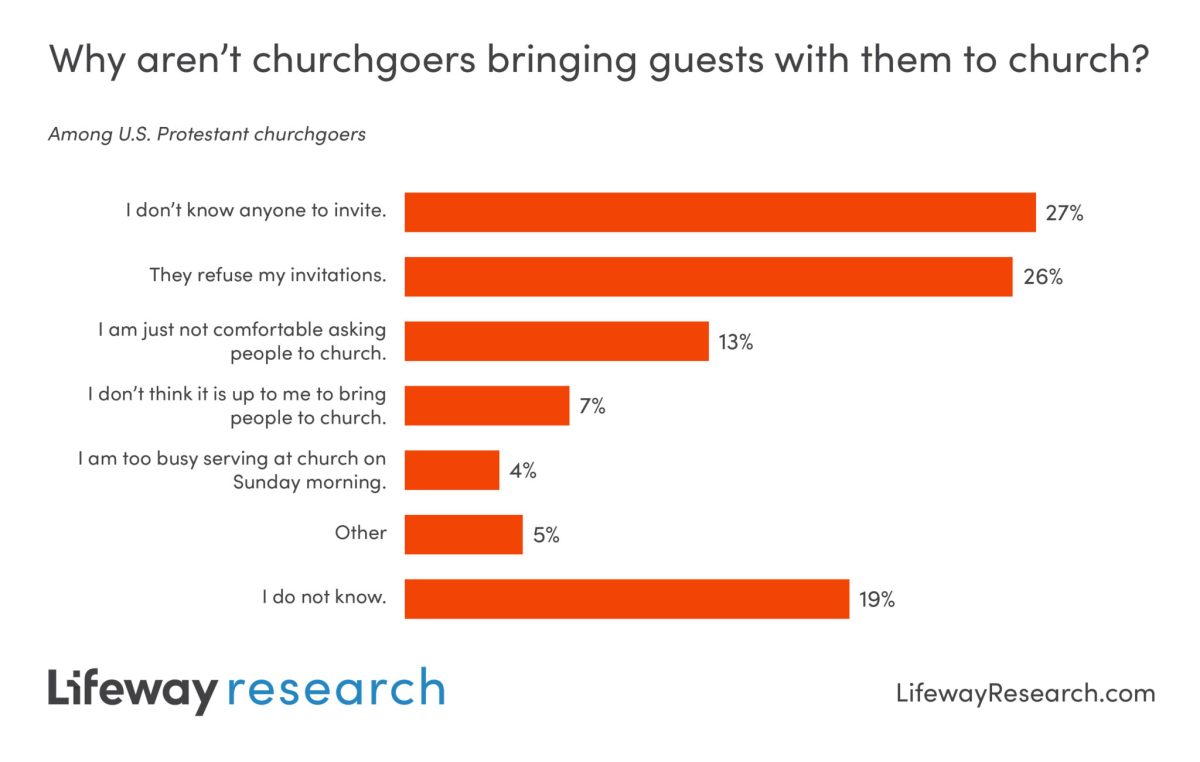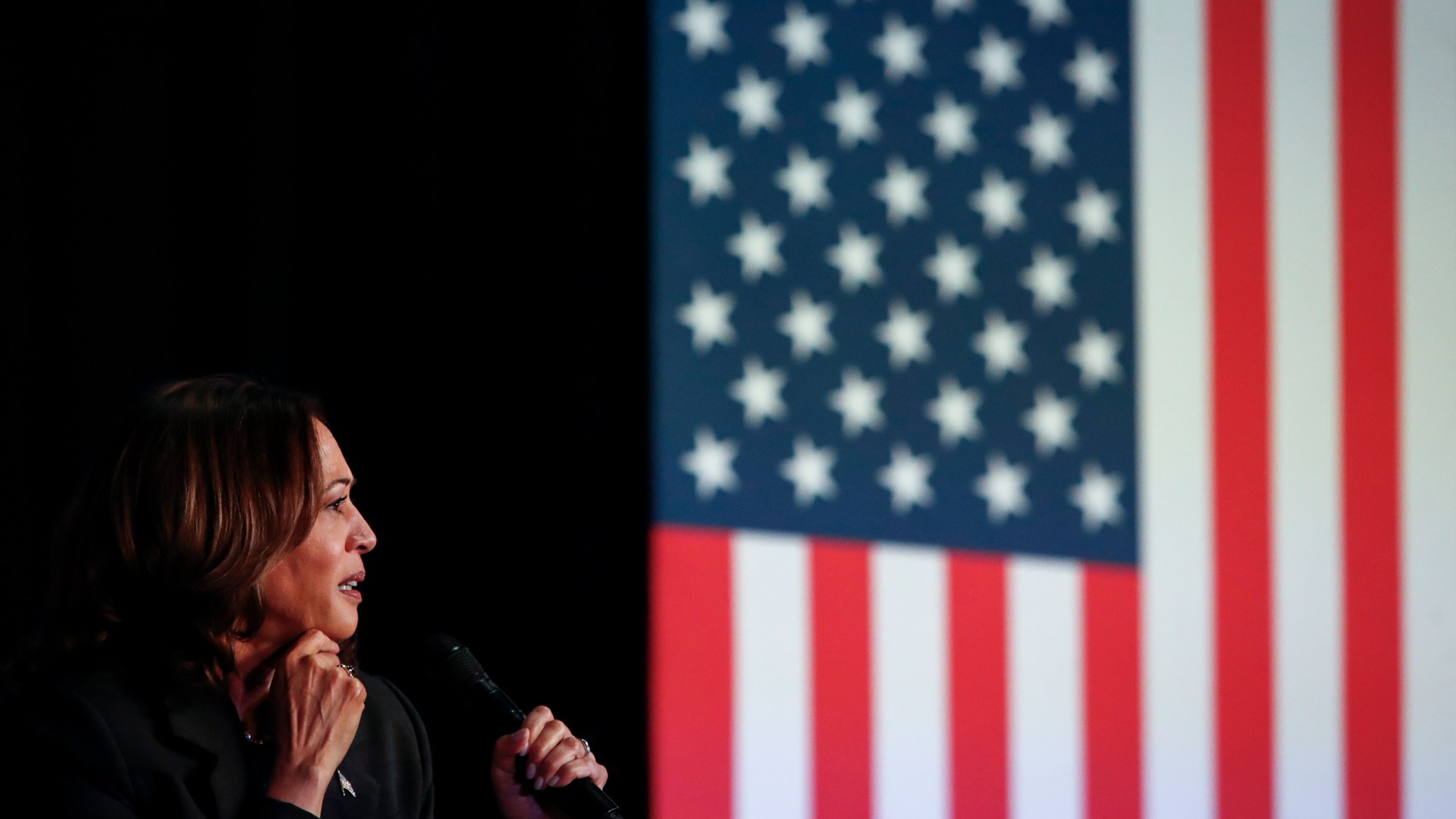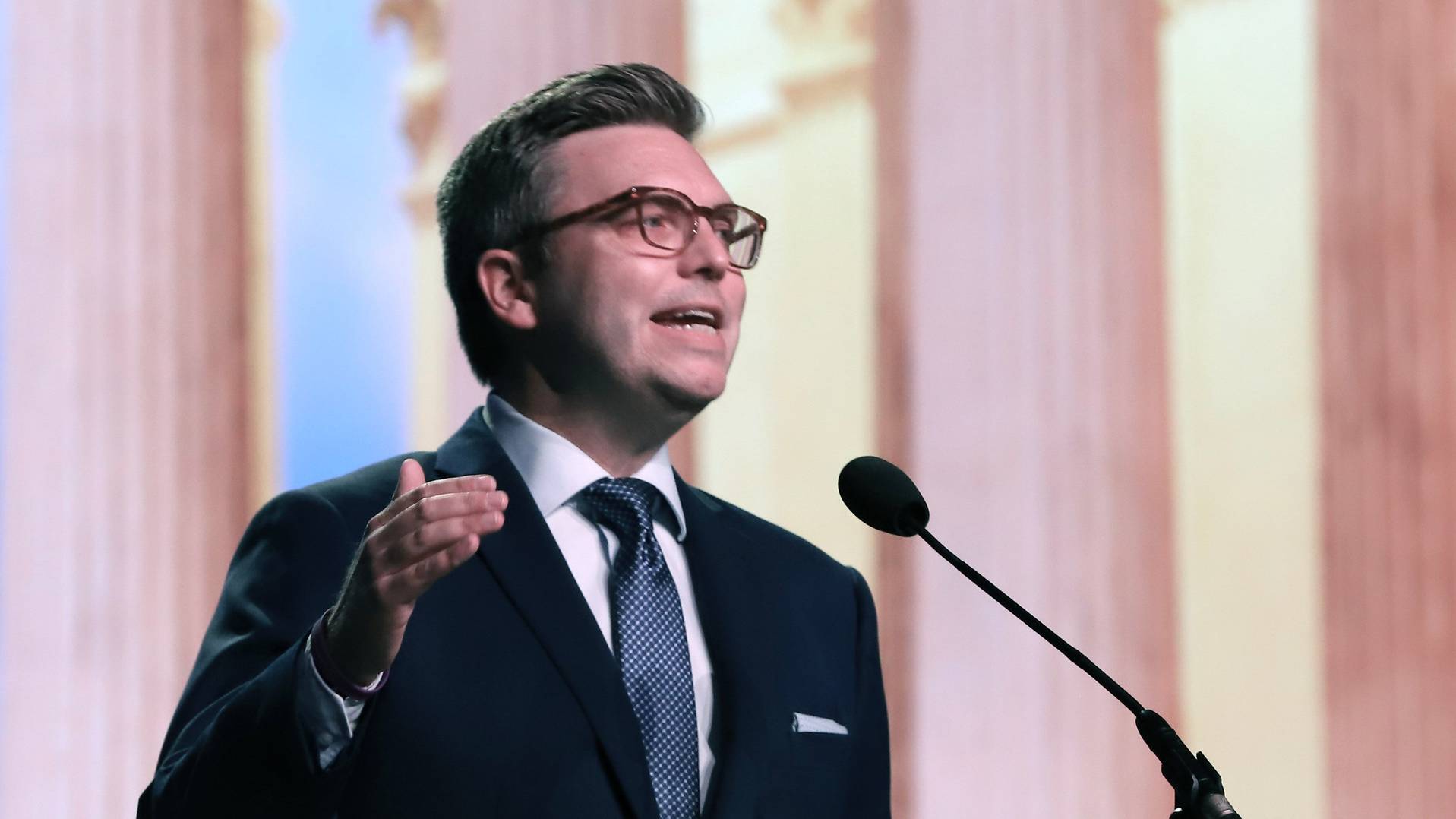This is the most important election of our lifetime.” I’ve heard this said every presidential election in my lifetime, but, this time, the stakes are being raised even higher. The 2024 election is not just the most important—the consequences of it are existential.
At a fundraiser in February, President Joe Biden called Donald Trump the “one existential threat,” and he has also written on X to constituents: “In this election, your freedom, your democracy, and America itself is at stake.” Vice President Harris said at an event this month, “This is the one. The most existential, consequential, and important election of our lifetime.”
Former president Trump has used this line of argument as well: At the Faith and Freedom Coalition last month, he said that “this will be the most important election in the history of our country” and “our one chance to save America.” Back in March, he responded to the claim that he was a “threat to democracy” with, “I’m not a threat. I’m the one that’s ending the threat to democracy.”
These talking points might be effective campaigning, but they make for a toxic political culture.
In college, I competed in policy debate tournaments—a form of debate that focuses more on detailed (and fast-paced) presentation of evidence than rhetoric or performance. We created elaborate argumentative chains, showing how one policy change (subsidies for offshore wind turbines or the legalization of online gambling) could cause a cascading chain of events that nearly always ended in global nuclear war. It was a way of beating the other team: Sure, your proposal might lower inflation or decrease violent crime, but that’s nothing compared to global nuclear war.
Often, we spent more time debating which global extinction scenario was immediately catastrophic than we did debating the merits of the various policies that were supposed to be the topic of the debates. It sounds silly, but, this year, the same thing seems to be happening in our national politics.
We raised the stakes so high that we often sidestep substantive conversations about policy in favor of weighing apocalyptic scenarios. These existential narratives are often more about scaring people into turning out to the polls than they are about fostering dialogue about important issues.
This is where Christian theology offers a gift to our politics: an end to existential threats.
For Christians, nothing is truly a threat to our survival or existence. We are a people who believe Jesus Christ when he promised to return to his fallen creation, to wipe every tear from every eye and to make all things new. We believe that this story we are living does not end in violence, chaos, and strife—it ends with perfect righteousness, justice, and peace.
The promise of Christ’s return does not demand quietism or political escapism; rather, it should prompt faithful political work that can resist the impulse toward violence and injustice. If Christ is returning to make everything new, prejudiced or brutal political options become less rational, less necessary. If this election poses an existential threat, then we can more easily justify doing anything—including harming our neighbors, lying, stealing, or cheating—to avoid it. But if ultimate justice is promised by God, we have the freedom to seek provisional justice here on earth as faithfully as we can, without fearing that if we fail all is lost.
This is the theology that motivated some of the greatest movements for justice in our country’s history. The abolitionist Maria W. Stewart was able to hold together a fierce condemnation of slavery with a deep commitment to nonviolence because the end of the story was assured: “Stand still, and know that the Lord he is God. Vengeance is his, and he will repay.”
Martin Luther King Jr., perhaps this country’s most famous advocate of nonviolent resistance, was clear that this approach was not merely pragmatic but theological: “The movement [of nonviolence] was based on hope … even though the arc of the moral universe is long, it bends toward justice.”
There has been a lot of talk lately about lowering the heat of our political rhetoric, a recognition that when the issues seem so paramount, we risk reacting with violence. But this wise counsel needs a stronger theological backing.
The threats, after all, are not imagined or entirely exaggerated. The consequences of this election will be serious, and likely in ways we do not yet know. Lowering the stakes in the face of these threats might diminish the real significance of elections: They shape people’s lives, especially the most vulnerable. It risks communicating to people that politics doesn’t really matter that much, that the human lives that will be affected by the outcome are not worthy of our attention.
But lowering the stakes because we believe that the end of the Christian story is true is another thing altogether. Lowering the stakes because ultimate justice is not at risk in this election opens up greater opportunities for meaningful change here and now.
To many in our nation, it feels like the options are between living in a constant state of existential threat and checking out of politics entirely. I’ve heard many bemoan on social media, “Can’t we just live in precedented times?” or “How many historical events do I have to live through?” We constantly hear that the fate of our country is at stake in this election, but raising the stakes hasn’t seemed to inspire more political involvement.
The comment I hear most frequently from people in churches and schools across the country is that the fear and anger have exhausted them, tempting them toward total political apathy. We are bombarded with information about the great injustices and evils in the world, alarmed by the conditions of our own political culture, and we feel helpless to do anything about it.
Either we constantly scroll social media for updates on the latest sign of impending political doom, sign up for every political group in town, and take every opportunity to convince our friends and family members about these existential threats—or we throw up our hands, declare the whole political system unfixable, and live in blissful ignorance of the folks who will be more directly affected by the policies we can’t be bothered to research. However, there is an alternative to these options.
All of these claims—of existential threat, of “living in historic times,” of democracy teetering on the edge of disaster—are claims about where we sit in history, and what agency that position allows us. If this is the defining moment of history, we should act differently than we would under normal conditions. If democracy is on the ballot, nothing else really matters. If this candidate or party will end our very existence, political options to persuade or negotiate are off the table. All that’s left is to destroy or be destroyed.
But the Christian story says that we are not awaiting the impending turning point of history from goodness to chaos. The Christian story says that the defining point of history has already happened: the resurrection of Jesus Christ. In light of that victory over the powers and principalities, and in hopeful anticipation of his return to bring that victory to consummation, we have opportunities to effect change in our fallen world. The resurrection of Christ is the horizon of our agency, the event that defines the possibilities for creative and faithful work.
One of the most frequent biblical themes is that it is not the powerful and important whose actions most matter but the lowly, forgotten, and small. In a political culture that feels hopeless, in a system we feel powerless to change, Scripture offers us stories of surprising agency: of three men who survive a fire when they stand down an idolatrous king, of midwives who save the lives of infants, of a man on a cross who dies a gruesome death but then rises from the grave.
In the face of an onslaught of existential threats, Christians can proclaim to the world that our options are not between apathy or political violence (Rom. 12:18–20).
Freed from the constraints of existential politics and motivated for change, new possibilities appear. We can fight for justice, advocate for the oppressed, and seek flourishing in our own neighborhoods without worrying that if our candidate loses or our advocacy fails it means that our very existence is threatened. And we might just discover that politics has all kinds of places for fruitful work that we previously ignored in our rush to stave off the biggest existential threat.
Christian political action can be bringing a casserole to a neighbor, showing up to a city council meeting, setting up an apartment for a refugee family, writing a letter to an elected official. Within the frame of God’s redemptive story, these small acts of justice and peace take on greater significance than the desperate attempts to bring peace to earth at any cost.
Kaitlyn Schiess is the author of The Ballot and the Bible: How Scripture Has Been Used and Abused in American Politics and Where We Go from Here.





































